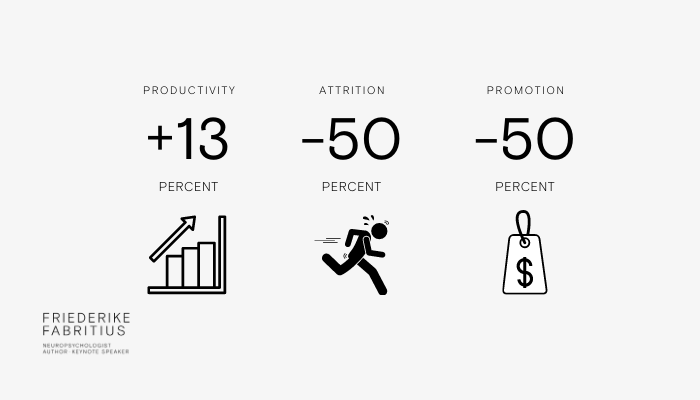What’s the impact of remote working on productivity?
Where are you most productive? At home or in the office? There are many surveys that study this question, but as a neuroscientist I know that surveys are not very scientific. For the most part, people tell you what you want to hear or even worse, what they would like to believe about themselves. Studies have shown that patterns in brain activity predict people’s actions better than any survey.
We don’t have brain imaging studies of people working from home yet, but here is an alternative. Let’s take a look at the first controlled study in which researchers from Stanford University studied whether people are more productive at home or in the office. This was done without measuring their brain activity, but still much more accurate than many of the surveys that are circulating on this topic.
Working from Home Improves Productivity
This experiment was conducted in a call center in China in 2012. Researchers randomly assigned a part of the workers to home office, while the control group continued working from the office. The good thing is that everybody had the same tasks and that productivity can be easily measured in a call center. Here is what they found:
Productivity improved by 13 percent. But there were also big individual differences. This number is just an average. Some people are highly productive when working from home, while others are not. This effect went up to 22 percent after nine months when people had a choice to either return to the office or to continue working from home.
They also had a 50 percent reduction in attrition for those working from home as compared to those in the office and they found that people enjoyed working from home using standard questionnaires for workplace satisfaction.
But there was also a downside: People who worked from home got promoted 50 percent less. We tend to trust and to promote those we see in person rather than just virtually. This is particularly challenging for organisations that chose a hybrid approach where some people work from the office, while others stay at home.
What can we conclude from the Stanford Working from Home Study? Working from home improves productivity…if done the right way.
How can you be both productive and happy when working from home?
It all comes down to great habits.
Researchers estimate that 40 percent of what we do is driven by habits. I personally think that this number must be too low. Almost everything we do on a day-to-day-basis is somehow influenced by our habits. If you have great habits, you have a great life.
During the upcoming posts we will look at the most common challenges and how to address them by establishing better routines. Stay tuned for my 8 brain-hacks for working from home.
Resources:
1. “The Leading Brain: How to work smarter, better, happier”, Random House, 2017
2. Stanford Study: Bloom et al. 2013
